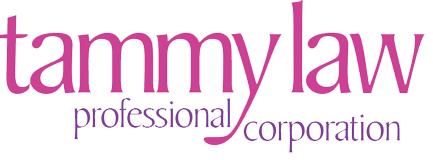It has been a busy year for appeals at our office. Since our last adventure to the Supreme Court of Canada in November 2017, we have been retained or consulted on several family, child protection, and criminal law appeals. These experiences have led me to strongly believe in what I am going to say in this blog. Specifically:
If you plan on appealing anything, YOU NEED TO RETAIN A LAWYER.
Do not. I repeat, do NOT contemplate an appeal without seeking legal advice or better yet, retaining a lawyer.
As you can see from my website and some of the blog posts I have written, I support access to justice initiatives such as limited scope retainers to assist our clients with legal costs. However, when it comes to an appeal, I cannot stress enough how necessary it is to retain a qualified lawyer to do the work.
One of the reasons for my strong belief in the importance of hiring a lawyer for an appeal is related to the inherent difference between appeals and initial proceedings. An appeal is not a simple re-argument of the case. Instead, the function of appellate courts is to correct errors made by the “lower” courts. This means that litigants must focus must be on the legal errors made by the court being appealed from. An appeal is not a re-hearing of the matter and is not an opportunity for litigants to rehash the same arguments made previously. The inquiry engaged in by the appellate court is usually a legal one, namely: “what legal error has the court below made and should an appellate court correct that error?”. In order to help the court answer this question, knowledge of the law is essential, and this is exactly the type of thing that lawyers were trained to be good at.
Another reason why I strongly believe that a lawyer is necessary is because the filing of materials for an appeal can be extremely complicated. Due to the multiple levels of court we have in Ontario, appeal routes are often unclear. Is a temporary order appealed to the divisional court or the court of appeal? What is a temporary order and what is a final order? Is leave required or is there an appeal available as of right? All of these questions are tricky, and unfortunately, often unsettled. I always groan internally whenever there is a question about the proper appeal route and I cannot imagine it would be easier to deal with as a self-represented litigant. Having been through the madness of determining appeal routes (and the deadlines associated with those appeal routes), this is not a problem anyone would wish to have.
Finally, it is important to have a lawyer on appeals because unlike other types of proceedings, the written work product is extremely important. As frequently noted by Justice John Laskin, a judge of the Ontario Court of Appeal, written advocacy is more important than oral advocacy and legal writing is an art which needs to be developed and honed. This is never more true than on appeal, where the written materials frequently influence the questions that will be asked in oral submissions. Lawyers who excel in written advocacy are invaluable on appeals.
So if you are thinking about doing your own appeal, I ask that you pause and consider speaking with a lawyer about it first. Having done quite a few appeals myself, I believe that this is an area where the services of a lawyer is absolutely necessary.


Comments are closed.